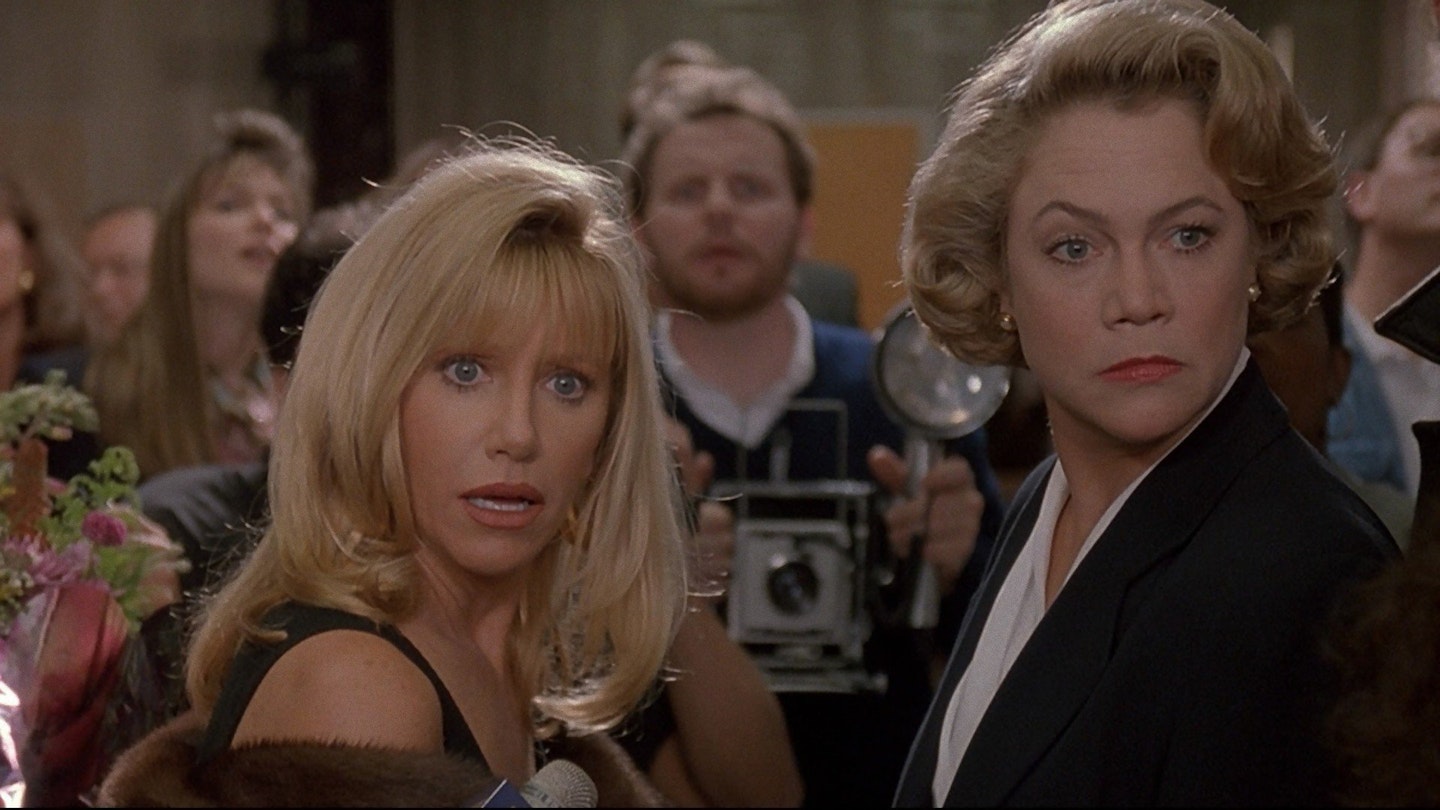After Hairspray and Cry-Baby, which found him posing as a good boy, John Waters here reaches back into his disgusting past to make something on a level with his first above-ground feature, Polyester, if not down to the strange depths of Pink Flamingos, Desperate Living and Female Trouble. In suburban Baltimore, perfect home-maker Beverly Sutphin (Turner) bakes and cleans for her ideal family, supporting nice guy dentist husband Eugene (Waterston) and sympathising with daughter Misty (Lake) through boyfriend problems. However, driven to irrational rage by small things like unworn seat-belts and unrewound videotapes, she reacts with criminal behaviour that escalates from obscene phone calls to murder.
Like Waters' early, filthy films, this follows the misdeeds of a loveable female monster who alternates sitcom saintliness with wallow-in-the-slime grunge, presenting a perversely innocent inversion of family values that almost counts as a moral philosophy. In a parody of recent tabloid kerfuffles, Beverly gets famous enough through her slaughter spree to warrant a TV movie starring Suzanne Sommers, plus a range of Serial Mom T-shirts and collectibles. Funny as the cartoon gags are, the strangeness of suburbia has been far more interestingly explored by the likes of Blue Velvet, while serial killer chic was the most overworked satirical target in America at the time.
In his progress from fringe to mini-major, Waters has learned how to make a movie that doesn't look like a filmed village panto, but he still can't tell a story. This lurches between scenes with dollops of padding, and mistakes a lot of confusing things happening at once for a satisfying climax. But with the death of his usual star, Divine, Waters has made an inspired choice in Turner, whose subtlety prevents the film becoming as shrill or monotonous as Divine's vehicles were.
